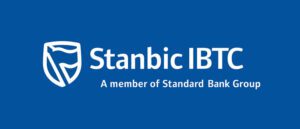
Nigeria’s economic struggle deepens as $8.25bn W’Bank loan remains undisbursed
…External debt to W’ Bank reaches $14.33bn — DMO
By Sodiq Adelakun
Nigeria, a nation struggling with economic difficulties, is facing a delicate predicament as it currently possesses an unallocated World Bank loan amounting to around $8.25 billion as of July 2023.
This revelation, based on data obtained from the World Bank’s Summary Statement of Loans/Credit/Grants, sheds light on the country’s increasing debt burden.
With $7.45 billion from the International Development Association (IDA) and $1.12 billion from the International Bank for Reconstruction and Development (IBRD) remaining undisbursed, Nigeria’s debt to the World Bank could surge by 66.27 per cent.
The IBRD and the IDA, constituting the World Bank, have been instrumental in providing loans to Nigeria over the years.
While the IBRD primarily lends to creditworthy low-income and middle-income countries, the IDA focuses on extending concessionary loans and grants to the world’s poorest nations.
Nigeria’s debt to the World Bank currently stands at $14.33 billion, comprising a $13.84 billion IDA loan and a $488.35 million loan, as per the Debt Management Office’s external debt report.
However, the audited financial statements of the World Bank for the fiscal year 2022 revealed that Nigeria was yet to receive approximately $8.12 billion in loan disbursements as of June 30, 2022.
The undisbursed loans include both approved but unsigned loans and signed loan commitments. The World Bank clarified in its 2022 statements that loan disbursements are contingent upon the borrowers and/or guarantors fulfilling certain actions and providing necessary documents.
This bureaucratic delay has contributed to the accumulation of Nigeria’s debt to the World Bank.
The undisbursed loans pose a significant challenge for Nigeria’s already burdened economy. If disbursed, the loans could potentially increase Nigeria’s debt to the World Bank from $12.72 billion to $21.15 billion, marking a staggering 66.27 percent rise.
This surge in debt could further strain the country’s financial resources and hinder its ability to invest in crucial sectors such as infrastructure, healthcare, and education.
In recent developments, the Federal Government of Nigeria has expressed its intention to refrain from borrowing from local or foreign organisations. This decision was reinforced by the removal of subsidies on petrol and the pursuit of exchange rate harmonization.
The government aims to reduce reliance on external borrowing and explore domestic revenue generation avenues to alleviate the country’s debt burden.
However, the undisbursed World Bank loans remain a pressing concern that requires immediate attention and resolution.
Nigeria’s undisbursed World Bank loan presents a complex dilemma for the country.
While the loans hold the potential to provide much-needed financial support, their non-disbursement exacerbates Nigeria’s debt burden.
Nigeria’s economic future hinges on prudent financial decision-making and a comprehensive approach to address its debt challenges.
The Minister of Finance and Coordinating Minister for the Economy, Wale Edun, announced during the inaugural Federal Executive Council meeting in Abuja that the Nigerian government will no longer borrow for recurrent expenditure. Instead, they will focus on borrowing for capital expenditure.
However, Edun clarified during a press briefing on Friday that the government will still proceed with the loan requirement approved in the 2023 budget.
Edun explained that the government’s decision to stop borrowing for recurrent expenditure is due to the country’s high debt service to revenue ratio, which currently stands at 90 per cent.
Despite these challenges, the borrowing requirement outlined in the 2023 budget, which was approved by the National Assembly, will still be pursued.The government’s commitment to finding alternative sources of funding, rather than relying solely on borrowing, is evident in their decision to prioritise borrowing for capital expenditure.
This type of borrowing is considered more beneficial as it has a return on investment and is self-financing. By reducing or eliminating borrowing for recurrent expenditure, the government aims to address the rising debt burden and improve the country’s financial stability.
They recognise the need to find sustainable ways to fund recurrent expenses, such as salaries and operational costs, without relying heavily on borrowing.
The government’s decision aligns with their long-term goal of reducing the country’s debt and ensuring that borrowed funds are invested in projects that generate economic growth and development.
While the government acknowledges the importance of borrowing to finance critical projects, they are also aware of the need to strike a balance between borrowing and debt sustainability.
They are actively exploring other sources of funding, such as public-private partnerships and foreign direct investment, to reduce reliance on borrowing and diversify the country’s revenue streams.
According to Wale Edun, “Government is not in a position to borrow if you consider 90 per cent debt service to revenue and behind that, a rising debt to GDP ratio. If you look at the last budget, you will see that there is a borrowing requirement built into it, appropriated by the National Assembly. And that is ongoing.
“It is an indication of the commitment of the government to find other sources of funding rather than relying on borrowing and to bring down or even eliminate a certain type of borrowing as soon as possible. That type of borrowing is borrowing for recurrent as opposed to borrowing for capital expenditure, which has a return and which is self-financing.”



